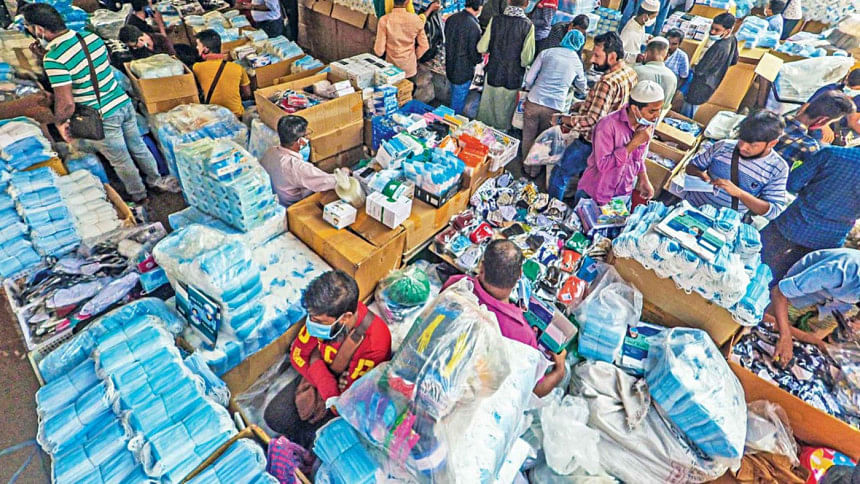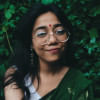‘Second wave of the pandemic’ woes, etcetera

The second April of the pandemic is here, and it seems we are back to square one. Just as most institutions were planning to reopen (all of them intending to exercise proper health guidelines, one hopes) after having lost a year to the Covid-19 pandemic, daily infection rates and fatalities are rising exponentially, with April 6 seeing 7,213 cases and 66 deaths, the highest for Bangladesh in a day—ever.
Over the course of writing this piece, I have had to revise those figures five times. And, for once, that has little to do with how much I procrastinate on writing and everything to do with how quickly the situation is hitting new lows every day.
The government initially issued 18 directives for the public in order to contain and combat the virus until at least April 12. Of course, now we are near the middle of a weeklong "lockdown" (until noon of April 11), with a new set of 11 directives, just dipping our toes back into the familiar waters of April past.
With that, it seems it is time again for us to brush up on our pandemic manners, as if we are blind to the constant reminders of it that are present in our homes and outside.
There is no denying that the nation is, at present, collectively in its worst state so far in terms of the coronavirus pandemic. It is not just a case of "more people being tested equals more positive cases"—because we all participated in bringing about this second wave of the pandemic. Offices reopened, most not in limited capacities and many in full swing. Weddings consisting of two to four ceremonies took place (amateurishly choreographed dances and all), coffee and dinner dates happened, and we all indulged in much-needed adda's with our friends and family. It would be the height of hypocrisy for any of us, including authorities, to now act shocked and dismayed at the ongoing Covid-19 surge.
Sure, the vaccines got here on time. But were they being properly distributed amongst the public? In order to register for the vaccine, one had to go to the website surokkha.gov.bd and use his/her/their National Identification (NID) card number to complete the registration. This is grossly exclusionary to the majority of the population, for whom accessing a website and filling out details is not a process which only takes a few minutes. Having one's NID card be the only form of verification, too, is problematic, given how many people do not even have their NID cards or have lost them. It is also a bit curious that the registration process for the vaccine was made even remotely complicated, amid a crisis as deadly as the coronavirus pandemic. And why was it so? To establish how forward we are in terms of our technological prowess? Is that our priority at this time, instead of inoculating as much of the population as quickly as possible?
The medium-scale implementation of the vaccine drive and the public's lack of interest towards it should have meant that we would still practice all of the general safety measures—maintaining social distancing, going out only when necessary, etc. After all, no matter how strictly the government enforces its directives, keeping safe from this particular virus is also the responsibility of each individual member of the public. But instead, we let loose gradually, until it seemed life was back to the old normal—only now we wear masks, sometimes. As if the "no mask, no service" signs at every establishment (large, medium, or small) and the PSA before the first outgoing call of each new day have already become words which hold no meaning. As if the rising numbers of Covid-19 infections and related deaths are also mere numbers now, instead of each digit representing human lives affected or lost. As if doing the bare minimum of wearing a mask properly in public and maintaining good hygiene, too, are too much to ask for from us. That seems to be how far gone we are in terms of losing empathy for others in our fast-paced and "digital" nation.
Back when things were only beginning to worsen (when was that, a week or a month ago now?), I had planned on writing mighty about how we should be careful and thoughtful when we are raising awareness about the virus. That we should measure out equal parts sympathy and sternness into our words when asking someone to "please, wear your mask" and "distance socially" and "wash your hands" and "do you really need to go to your friend's cousin's wedding?" In any case, do not stigmatise the virus: that was to be my message. But maybe doing just that is what got us here, now that I think about it.
According to the World Health Organization (WHO), there is evidence that stigma due to the virus leads to people not seeking medical attention for their symptoms and not following public health directives as adamantly. So, of course, when someone coughs near you, it would be inconsiderate of you to give them the stink-eye, as that is not helpful and might also make them feel like a pariah of some sort. And if that person is someone you know, then your reaction might give them the idea that you are not a safe person for them to reveal their symptoms to or ask for help from if they are in fact ill.
But what about those of us who do not practise safety out of sheer arrogance? Sure, perhaps only a higher power can dictate whether or not you catch the viral infection, no matter how safe you keep yourself. But that's the thing: how can you be sure that such a higher power will not "decide" to give you the infection? Is that not arrogance—rather than faith—to knowingly put one's own and others' health at risk (by not following basic Covid-19 health guidelines), when not doing so is very easily avoidable?
Then there are others (like myself), who are neither arrogant, nor ignorant—but simply chose to turn a blind eye to the dangers of socialising during the last few months (when the infection rate had taken a dip). Safety measures were only practised whenever enforced or at one's own whim, as if these measures were optional and not moral obligations of each citizen.
"So, what can we do now?" is a question I can pose here for dramatic effect alone, because we all (those who have the means of reading this) already know what to do. As with anything in our particular society, it seems, only something drastic happening can wake us from our self-imposed stupor of ignorance and make us start acting the way we should have been acting all along. Perhaps this second wave of Covid-19, worse every day than the one before it, will push us to be more vigilant regarding the safety of everyone around us (loved ones and strangers alike) so we can move past it to a better normal—not just a new one.
Afia Jahin is a member of the Editorial Team at The Daily Star.

 For all latest news, follow The Daily Star's Google News channel.
For all latest news, follow The Daily Star's Google News channel. 



Comments